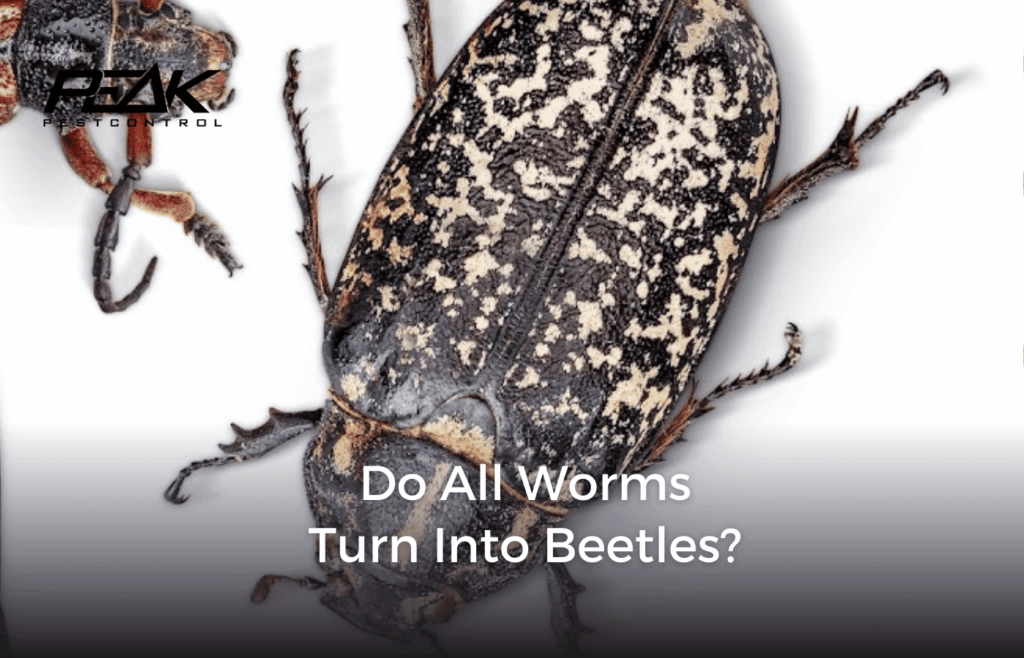A common question is whether worms can become beetles. When attempting to comprehend the natural world, this question frequently comes up. Both beetles and worms are intriguing animals that are vital to our ecosystem. They are not, however, as closely connected as some may believe. The life cycles of worms and beetles, as well as how preventative pest control can assist in managing these and other insects, will all be covered in this blog post.

Understanding Worms and Beetles
What Are Worms?
Worms are soft-bodied animals that live in a variety of habitats. They are members of the annelids category, which also includes leeches and earthworms. Worms are noted for their ability to replenish soil and have basic bodies. They are vital to healthy ecosystems because they aid in the breakdown of organic debris and the aeration of the soil.
What Are Beetles?
One kind of insect that has a hard shell covering its wings is the beetle. With more than 350,000 species, the order Coleoptera is the biggest group of insects. Numerous ecosystems are home to beetles, which play a variety of functions, including decomposers and pollinators. With separate body sections like the head, thorax, and abdomen, they are more complexly structured than worms.
The Life Cycle of Worms
Worms have a relatively simple life cycle. They hatch from eggs laid in the soil or other organic material. As they grow, they pass through several stages, shedding their skin as they develop. Worms do not undergo metamorphosis like many insects do. They remain in a similar form throughout their life, which can span from a few months to several years depending on the species.
The Life Cycle of Beetles
Beetles undergo complete metamorphosis, which means they have four distinct life stages: egg, larva, pupa, and adult. The larval stage of a beetle is often mistaken for a worm due to its elongated, soft body. However, as beetles progress through their life cycle, they transform into the hard-shelled adults we recognize. This process is quite different from the life cycle of worms, confirming that worms do not turn into beetles.
Preventative Pest Control
Preventative pest control is an important practice to manage unwanted insects around homes and gardens. By taking steps to prevent infestations, you can avoid potential problems before they start. Effective insect control methods include sealing entry points, maintaining clean surroundings, and using natural predators to keep insect populations in check. For more persistent issues, professional pest control services can offer targeted solutions to manage specific pest challenges.
Balancing Ecosystems: The Role of Pests and the Importance of Pest Management
Worms and beetles are distinct creatures with different life cycles. While worms do not turn into beetles, they both play crucial roles in their respective environments. Understanding these differences can help us appreciate the diversity of life around us. Additionally, implementing preventative pest control measures can help protect our homes and gardens from unwanted insects, ensuring a balanced ecosystem.
Encounter unwanted guests in your home or garden? Let Peak Pest Control restore the balance to your ecosystem with our expert services. Our team is ready to tackle any challenge, ensuring a pest-free environment. Contact us today and experience the peace of mind that comes with professional pest management.


